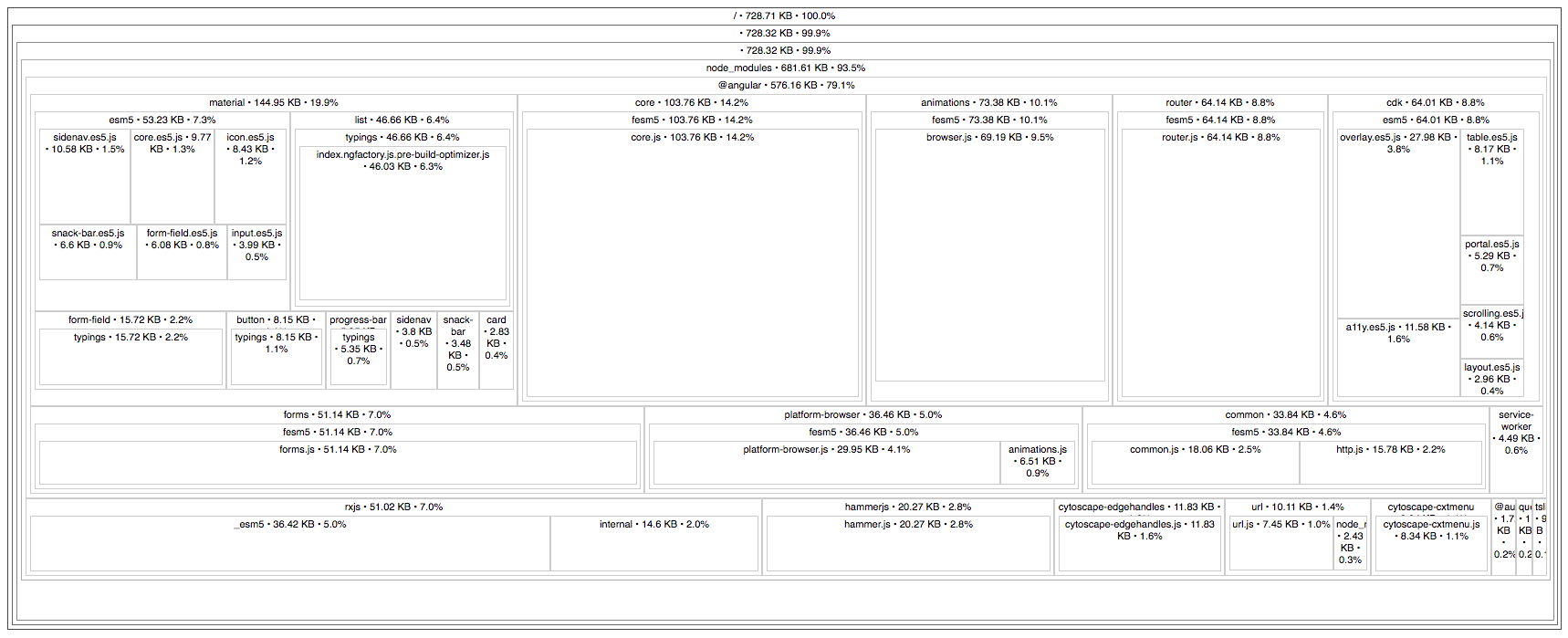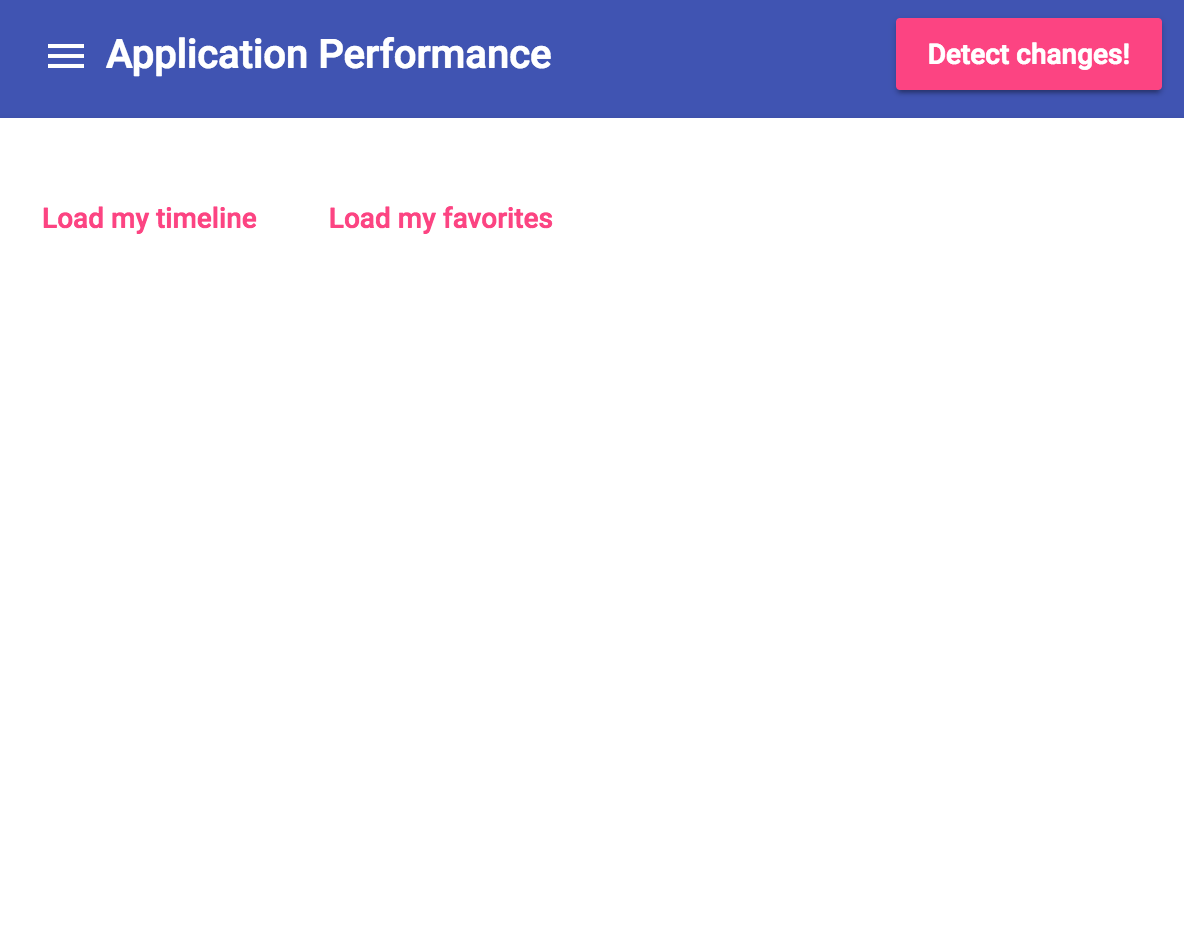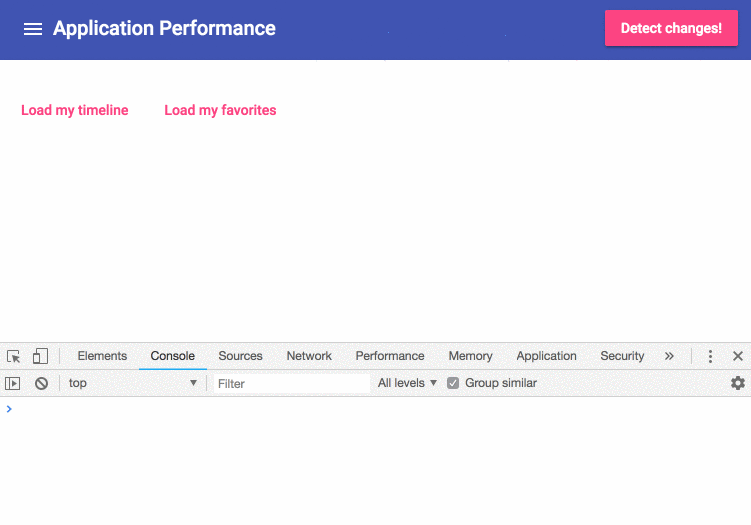Optimized Angular apps:
-
smaller
-
faster
-
better

Web App Performance
Network bandwidth
Device performance
}
}
Generate smaller bundles
Optimize the code to display UI updates faster
Network performance strategy
-
Make overall bundle size smaller
-
Split bundle and download only what we need for the starting-up
-
Cache network responses for the future usage
Build the app using prod
$ ng build --prod-
Using Ahead of Time compilation
-
Using Build Optimizer
-
Registering Angular Service Worker (if enabled)
-
Executes enableProdMode() via setting prod environment
Recipe #1
How to
$ ng build --prod --source-map
$ npx source-map-explorer main.bundle.js
Use lazy loading
-
Download the only code needed to start the app
-
Use CanLoad guard to mediate navigation
-
Preload all the modules (except the ones protected by CanLoad) by using PreloadAllModules strategy
-
100% flexibility with your custom PreloadingStrategy
Recipe #2
How to
const appRoutes: Routes = [{
path: 'tweets',
loadChildren: 'tweets/tweets.module#TweetsModule'
}]const tweetsRoutes: Routes = [{
path: '',
component: TweetFeedsComponent
}];app-routing.module.ts
tweets/tweets-routing.module.ts
Preloading strategy
@NgModule({
imports: [RouterModule.forRoot(appRoutes, {
preloadingStrategy: PreloadAllModules
})],
exports: [RouterModule]
})app-routing.module.ts
Consider server-side rendering
-
Better first-load experience
-
Social links with previews of a web site
-
Better for SEO
Recipe #4
Bootstrap
Load HTML
First meaningful paint
Bootstrap
Load HTML
First meaningful paint
No SSR
SSR
<app-root>Loading</app-root>
Loading

How to
A short way
A long way
$ ng add @ng-toolkit/universal
$ npm run build:prod
$ npm run server$ ng generate universal --client-project=ssr...and follow the guide at https://angular.io/guide/universal
Angular change detection (CD)
Data bindings
Update DOM
Event handlers
}
Change detection
}
UI render
Trigger
Ready
}
60FPS / 17ms
Code performance strategy
-
Make each change detection faster
-
Reduce number of change detections
-
Render as few as possible DOM changes
Use pure pipes instead of methods
<span>{{ relativeDate(tweet.createdAt) }}</span>Calculated on every change detection
Recipe #5
<span>{{ tweet.createdAt | relativeDate }}</span>Calculated only if the value was changed
Use OnPush CD strategy
Recipe #6
-
Every time
-
Any event happens
-
All components
}
By default
Use OnPush CD strategy
Recipe #6
-
Every time
-
Any event happens
-
All components
}
By default
Use OnPush CD strategy
Recipe #6
-
Every time
-
Any event happens
-
All components
}
By default
Use OnPush CD strategy
Recipe #6
-
Every time
-
Any event happens
-
All components
}
By default
How to
import { ..., ChangeDetectionStrategy } from '@angular/core';
@Component({
changeDetection: ChangeDetectionStrategy.OnPush
})-
The @Input reference changes
-
An event occurres from the component or one of its children
-
Running change detection explicitly
-
Observable linked to the template via the async pipe emits a new value
ChangeDetectionStrategy.OnPush

Go for your own CD schedule
-
Disabling CD for the component completely
-
Running some code outside Angular CD
Recipe #7
How to
import { ..., ChangeDetectorRef } from '@angular/core';
class RealTimeList {
constructor(private ref: ChangeDetectorRef) {
ref.detach();
setInterval(() => {
this.ref.detectChanges();
}, 1000);
}
}-
detach() / reattach()
-
detectChanges() / tick() / markForCheck()
How to
import { ..., NgZone } from '@angular/core';
class MyComponent implements OnChanges {
constructor(private _ngZone: NgZone ) {}
log() {
this._ngZone.runOutsideAngular(() => {
// Any code will not cause CD
}}));
}
}Use trackBy in ngFor loops
-
DOM manipulations are expensive
-
Immutable practices generate a new DOM collection
Recipe #8
How to
export class TweetListComponent implements OnInit {
...
trackById(index, tweet) {
return tweet.id;
}
}<div *ngFor="let tweet of tweets; trackBy: trackById">Angular App Performance
Networking
Code execution
}
}
-
Production mode
-
Lazy loading
-
Service worker
-
Server-side rendering
-
Using pure pipes
-
OnPush CD strategy
-
Custom CD strategy
-
Using trackBy